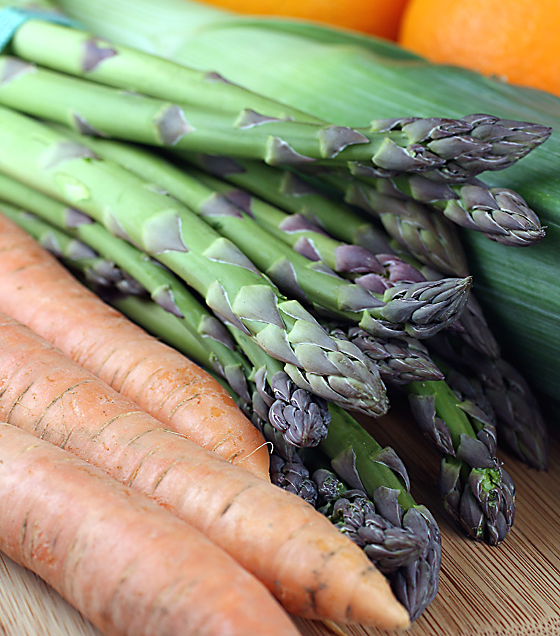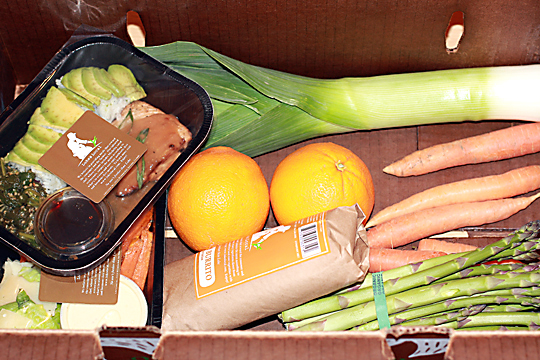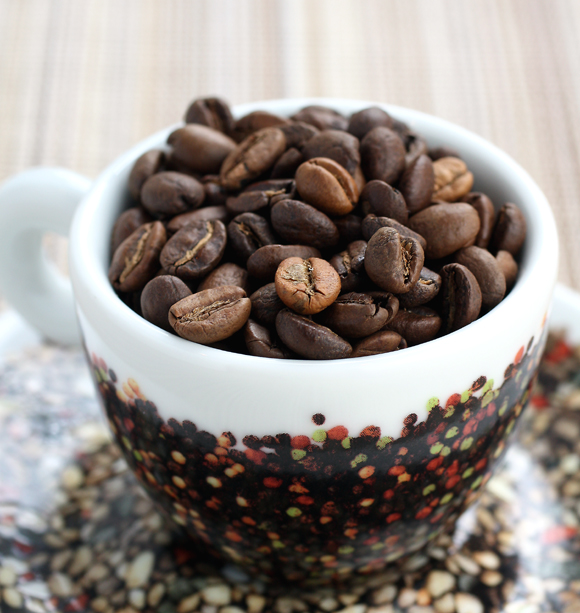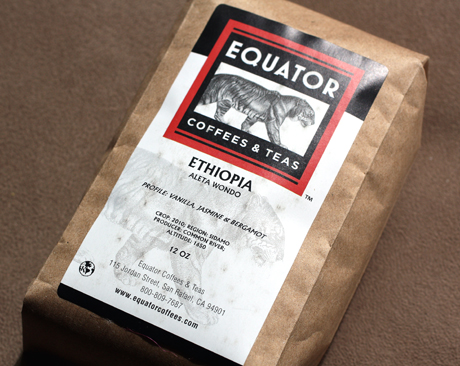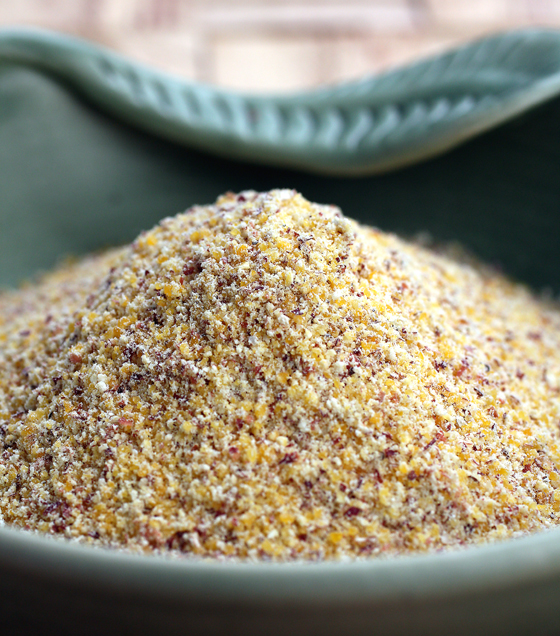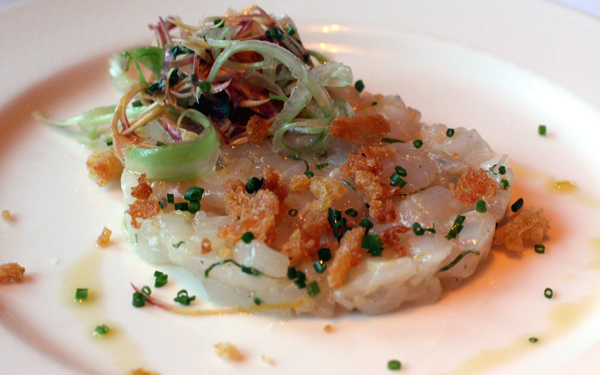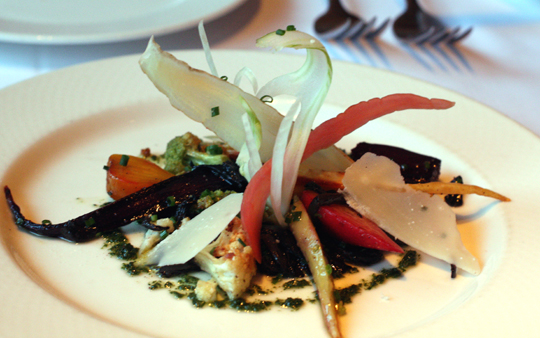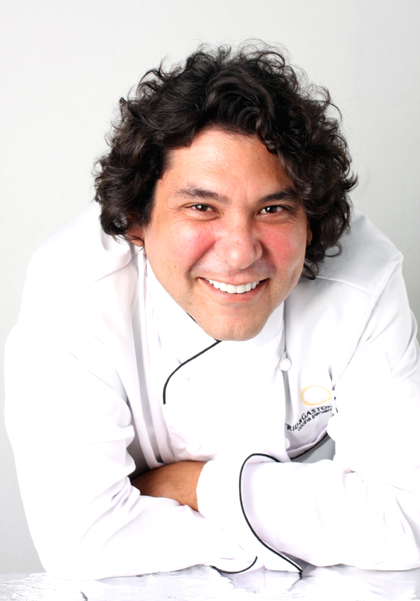
Chef Gaston Acurio is probably more recognized in other parts of the world than he is in the United States. But no doubt that will change in the coming years as the 43-year-old chef expands his already impressive culinary empire further in this country with his bold take on contemporary Peruvian cuisine.
Acurio, who has 32 restaurants in 14 cities around the globe from Lima to Sao Paulo to Santiago, staked his first foothold in the United States two and a half years ago when he opened the lively La Mar Cebicheria on San Francisco’s Embarcadero with its striking turquoise sea-blue decor. In August, he will open his second La Mar in the United States — this one in New York’s Madison Square Park in the former Tabla restaurant site.
Last week, when Acurio was in town to work on new dishes at La Mar San Francisco, I had a chance to sit down and talk with him about his new partnership with the Monterey Bay Aquarium, his future plans in San Francisco, and how his politician father came to terms with the fact that his only son was not going to follow in his footsteps.
Q: Is it more challenging to open restaurants in the United States than elsewhere?
A: No, our experience with San Francisco was great. The people in San Francisco love to eat and they recognize good food. In a lot of cities, you might go out to eat before you do something else. Here, you go out to eat just to go out to eat.
People here are also very open to trying new things. It’s not like trying to start a restaurant in Italy or Paris. Nobu closed his restaurant in Paris after only one year. Parisians just don’t want to spend $150 on ethnic food because they are proud of their own food. The same is true in Italy. Those are challenging places to open restaurants.
Q: Will you open more restaurants in the United States after the New York one is up and running?
A: Of course. We are looking right now in Los Angeles, Chicago and Miami.
The presence of Peruvian food in the United States is just getting started. We have a big responsibility to do it well or else we will close the door to those who come after us.
Q: Are most Americans confused about what Peruvian food is?
A: Most are. Peruvian food has five big influences: Japanese, Chinese, Spanish, African and Inca/South American. Cebiches are our flagship like sushi for the Japanese. Our stews are European-like. Our sauces are like African ones. And herbs and chilies are very important in our cuisine.
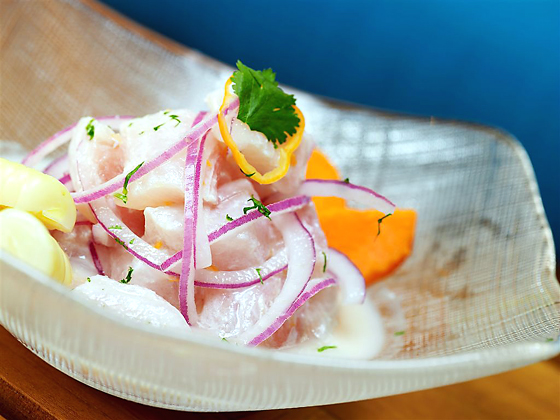
Q: With your partnership with the Monterey Bay Aquarium, you will have ‘Seafood Watch Guides’ available for the public at your restaurants and you will serve only sustainable seafood at all of your restaurants? How challenging will that be?
Read more

